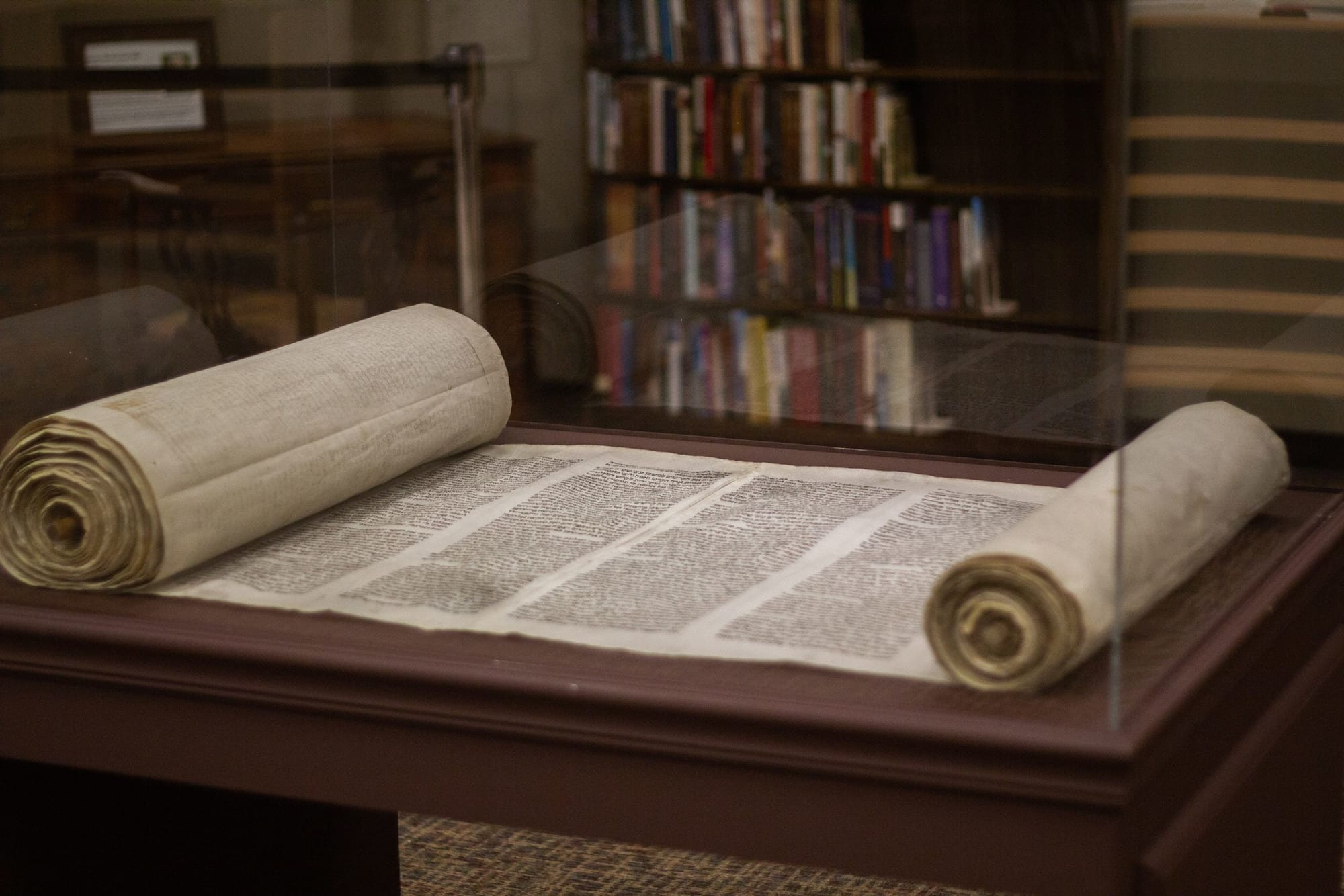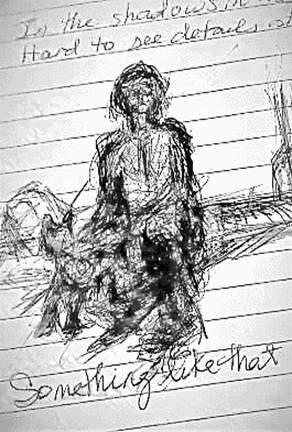Nehemiah Chapter 5 * When the Gate Breaks

Nehemiah Chapter 5
Gone to Mex & Back
“When the Gate Breaks”

In the Fall of 2016, I wrote the following entry after I began attending the Nehemiah class at Calvary Chapel in Rosarito.
This week someone broke the gate leading to Playas Santa Monica, directly across from my house! On one hand, it was a relief not to hear honking and pleading for someone to open the gate when the guards were nowhere to be found. Now, with the gate broken, I could let down my own guard! Read and nap without interruptions of angry horns—the enemies of peace. But soon, with the gate open all day and night, I felt unsettled. What if someone came in who could be considered a threat to the community?
When I lived in Playas Santa Monica, the beach was the hub of our gated-community. Half of my community consisted of missionary families and others who attended the Calvary Chapel Rosarito. More church members, including Pastor Mike Vincent and his family, lived nearby on the other side of the gate. Every night, people flocked like seagulls to the beach, a block from my house, to enjoy the sunset.
As much as I enjoyed our community, I waged war with the gate. Day and night at least one guard was supposed to keep watch at the gate, letting in delivery trucks and people who had no remote opener. Remotes were expensive and reserved for residents only, so the number of people coming and going always exceeded the number of remotes. I lived there for six months before I acquired a remote, so I understood the frustration of having to wait at the gate if no guard was around, which happened frequently.
Since I lived across from the gate, I’d use my remote to let people in and out. It became a game. Someone hollered or honked at the gate making it hard to ignore them, then remaining hidden in my house, I aimed the remote at the gate and clicked away until it opened. I told my grandchildren and their friends to yell for Grandma Jill if they needed to go in or out (usually several times a day). I didn’t mind opening it, especially for the kids. Even as annoying as it could be, it made me feel a little special to be a gate-keeper.
I reflected on all this as I read Nehemiah. I learned how the wall and gates provided the Israelites some control over damaging influences that were brought into the city by outsiders. Foreign merchants came to trade and sell anything, anytime they wanted—even on the Sabbath. After the walls and gates were repaired, Nehemiah assigned guards to make sure outsiders were not allowed in on the Sabbath, so no one could be accused of breaking the Jewish law.
God came through on Thursday. After a week of experiencing what happens when the gate is left open, I was pumped about our broken gate being fixed. The next day when I saw Gregorio, our day guard, I couldn’t wait to share my thoughts about Nehemiah and how I’d been feeling that my spiritual walls needed repairing. I’m not sure it made a difference in Gregorio’s life, but it made a huge difference in mine. I began to appreciate having a gate at the entrance of my community.
I realized when the gate to my spirit is left open, like the gate being broken, I allow the enemy to sneak into my camp. The enemy mocks me with depression, ridicules me for being indecisive and feeble, and intimidates me like Goliath intimidated the Israelites, resulting in discouragement and fear. During the week of the gate being broken, my life was crazy. Friday night I got lost in the hills while taking a meal to a family; their dinner was two hours late. Saturday, I re-homed my Golden Retriever and have missed her terribly ever since. Wednesday was a down-and-out day of depression. Not really sure of what God’s mission for me in Rosarito is, I waver back and forth between staying and leaving, until this morning, I “threw in the towel” because I did not want a repeat of Wednesday. I told God, “I’m tired of trying to control things, especially trying to do things my way.”
Its important to keep our spiritual gate in good repair, so the enemy can’t just sneak in and contaminate our lives with hopelessness and fear and false teachings. To keep our protective wall in good repair, we should also perform daily spiritual maintenance.
NEH 5: DAY 17 READY, SET, READ!
Section I: Nehemiah Deals with Oppression
1 And there was a great outcry of the people and their wives against their Jewish brethren.
It came to Nehemiah’s attention that a dispute arose because of a shortage of food and money. This was not good when one group of people accused another group of being unjust. The women were the ones to speak out. They were the ones who kept the fires burning at home, and were entitled to have their voices heard.
2 For there were those who said, “We, our sons, and our daughters are many; therefore let us get grain, that we may eat and live.”
3 There were also some who said, “We have mortgaged our lands and vineyards and houses, that we might buy grain because of the famine.”
4 There were also those who said, “We have borrowed money for the king’s tax on our lands and vineyards. 5 Yet now our flesh is as the flesh of our brethren, our children as their children; and indeed we are forcing our sons and our daughters to be slaves, and some of our daughters have been brought into slavery. It is not in our power to redeem them, for other men have our lands and vineyards.”
They wanted to help each other, especially since everyone was affected by the famine. The problem was the men were busy at the wall, leaving the women to make the hard decisions. They mortgaged their lands and vineyards to buy grain, others borrowed money to pay taxes. When the money couldn’t be paid back because of high interest rates, the children were sold or pawned. No one could redeem the children with money from their lands or with the help of a kinsman, because everyone was poor; their lands now belonged to other men. It was a vicious and hopeless cycle.
6 And I became very angry when I heard their outcry and these words.
Nehemiah had every right to be angry. The money lenders were breaking the law by charging interest. Or as David Guzik suggested in his Enduring Word commentary, Nehemiah may have been angry because work on the wall had stopped due to the division caused by the dispute.

Section II: Nehemiah Brings About Social Reforms
7 After serious thought, I rebuked the nobles and rulers, and said to them, “Each of you is exacting usury from his brother.” So I called a great assembly against them.
Loaning money to help another in need was not wrong; charging interest was. It was time to set things right.
8 And I said to them, “According to our ability we have redeemed our Jewish brethren who were sold to the nations. Now indeed, will you even sell your brethren? Or should they be sold to us?” Then they were silenced and found nothing to say.
The question made them squirm. They had ransomed their captive brothers from being slaves to other nations. Were they now guilty of making their own people slaves?!
9 Then I said, “What you are doing is not good. Should you not walk in the fear of our God because of the reproach of the nations, our enemies?
Other nations shamed or brought reproach upon the Israelites because it appeared that God no longer cared for the Jews. Nehemiah suggested that the Jews keep their noses clean before God and before other nations who watched them closely.
10 I also, with my brethren and my servants, am lending them money and grain. Please, let us stop this usury! 11 Restore now to them, even this day, their lands, their vineyards, their olive groves, and their houses, also a hundredth of the money and the grain, the new wine and the oil, that you have charged them.”
12 So they said, “We will restore it, and will require nothing from them; we will do as you say.”
And that’s what they did. They immediately restored lands and children to their original place.
12 (continued) Then I called the priests, and required an oath from them that they would do according to this promise. 13 Then I shook out the fold of my garment and said, “So may God shake out each man from his house, and from his property, who does not perform this promise. Even thus may he be shaken out and emptied.”
Nehemiah made the priests take an oath that they would be responsible. His pep talk included a curse that would further motivate the priests to make sure it didn't happen again.
And all the assembly said, “Amen!” and praised the LORD. Then the people did according to this promise.

Section III: Generosity of Nehemiah
14 Moreover, from the time that I was appointed to be their governor in the land of Judah, from the twentieth year until the thirty-second year of King Artaxerxes, twelve years, neither I nor my brothers ate the governor’s provisions.
15 But the former governors who were before me laid burdens on the people, and took from them bread and wine, besides forty shekels of silver. Yes, even their servants bore rule over the people, but I did not do so, because of the fear of God.
16 Indeed, I also continued the work on this wall, and we did not buy any land. All my servants were gathered there for the work.
Because of the king’s provisions, Nehemiah could afford to be generous or he could have hoarded the food, sold it and become rich like the past governors. He also could have collected a governor’s provision from the people. A lot of “could haves;” instead, he fed people from his own table. Plus, he and his servants worked on the wall.
17 And at my table were one hundred and fifty Jews and rulers, besides those who came to us from the nations around us. 18 Now that which was prepared daily was one ox and six choice sheep. Also fowl were prepared for me, and once every ten days an abundance of all kinds of wine. Yet in spite of this I did not demand the governor’s provisions, because the bondage was heavy on this people.
19 Remember me, my God, for good, according to all that I have done for this people.
He wasn’t tooting his own horn in front of an assembly; he was writing in his journal, asking God to bless the work he had done in the name of the LORD. He probably had no idea that his journal would ever become so well-read.
NEH 5: DAY 18 CLASS NOTES & CONNECTIONS 
Nehemiah Deals with Oppression.
Do you get the feeling that Nehemiah might have been stretched a bit thin by all the opposition, the complaints of the laborers, and the families who needed rescuing from those who oppressed them. As busy as he was supervising and working on the wall, he took time to listen to the wives who petitioned him for help. He soon realized that there was a sickness inside Jerusalem. Greed.
Maybe you remember years ago when our the U.S. oil supply was threatened. People feared a gas shortage. Oil companies and gas stations jacked up the prices at the pump and the common people suffered. They were the ones who had to deal with the long lines at gas stations and the horribly high prices. These things affected their time, family, food, work, practically every aspect of their lives.
Meanwhile, back at the Wall . . . Because of the labor-intensive, time-consuming work at the wall, an extra burden was placed on the wives and families of the laborers. Food became more scarce. Businessmen jacked up food prices. Desperate and unhappy, the wives of the workers met with Nehemiah. (They took their concerns to the Man.) and explained what was happening. Because of the food shortage, landowners or farmers mortgaged property to buy grain during the famine.
- People had borrowed to pay the king’s taxes.
- People had to sell daughters and children.
THE JESUS CONNECTION: Mark 2:27
Jesus had first-hand knowledge of the Jewish people vs. oppression. People were physically oppressed by the Romans, and spiritually oppressed by the Pharisees. The Pharisees expected everyone to follow the Sabbath law to the letter—no working, no healing, no helping. Man was made to follow the laws of the Sabbath. Then along came Jesus. He healed on the Sabbath. He collected grain with His disciples on the Sabbath. When the Sabbath police called him out, Jesus told them, “The Sabbath was made for man.” He set things right.
God’s View on Loaning Money
What was God’s view on loaning money? According to Deuteronamy 23:19-20, it was okay to loan money to help others, but no interest was to be charged. Leviticus 25:35-40 tells us how we should treat people who run into trouble by giving them a hand up.
God is big on forgiveness. How many times did He forgive the Israelites as a nation? How many times has He forgiven us as individuals? To give relief to those who became heavily indebted to their own countrymen, God created the Year of Jubilee, (further explained in Leviticus 25). Every 50 years, the rulers of the Jews would release all slaves and erase all debts. This was important when it came to land debt, because under the Year of Jubilee, the land went back to the original landowners. By declaring the Year of Jubilee, God protected the national economy and families. It’s interesting to note that the Israelites did not keep the Year of Jubilee, partially because of the times the Jewish nation was in captivity. So when Nehemiah demanded lands and vineyards and families be restored, it became the Year of Jubilee.

THE JESUS CONNECTION: Luke 4:16-17
Jesus goes to the synagogue in Nazareth. He stands up to read and is handed the book of Isaiah. He reads from 61:1-2 . . . “To set at liberty those who are oppressed. To proclaim the acceptable year of the LORD.” This is a reference to the Year of Jubilee when slaves are freed, debts cancelled, and everything reverts back to the original owner or tribe. Jesus closes the book and sits down. The eyes of all in the synagogue are fixed on Him. And He said to them, “Today this Scripture is fulfilled in your hearing.” If only they had understood who He was and the authority He had to redeem them from bondage, they would have rejoiced. Instead, the crowd chased Him out of the temple and tried to stone Him.
Is it a sin to be angry?
Nehemiah became very angry when the women cried out to him. Why? Because just as the Israelites were finally in a position to start rebuilding the city and their lives, the practices of exhorting money and land from the disadvantaged crept in. The people were hurting. This was truly the work of the unseen enemy. The damage the enemy caused was both physical and spiritual—another tactic to destroy unity. When a nation or church is divided, the good work of restoration comes to a halt. Even if it’s not noted in Nehemiah’s journal, it’s possible that the work on the wall may have stopped or slowed down.
Nehemiah was angry, but he knew enough to think it through before saying anything. Remember in Chapter 4, he was fed up with his enemies’ attempts to thwart the rebuilding of the wall. Nehemiah, like Jesus, became angry when others oppressed the poor or disadvantaged or made a mockery of God. Psalm 4:4 say, it’s okay to be angry, just don’t sin.
Be angry at injustice and confront sin. Righteous anger is okay, but out-of-control anger is never okay. Just remember that if a leader can’t control himself, he will never be effective in controlling others. Each of us are called to be in control of ourselves. Neither gender nor nationality gives us authority to be angry.
After getting his anger under control, Nehemiah was able to set things right. He responded instead of reacted.
Six Ways to Rebuke Others (verses 7-11)
- Nehemiah appealed to their love for their brethren.
- His rebuke was based on the word of God. He knew Scripture because He had studied the word of God. If you rebuke anyone, make sure your opinion or what you are telling them is true.
- God was in the process of redeeming Israel. Nehemiah knew God’s purpose was to restore Israel. We need to keep the big picture in mind. Greed enslaves us; truth and love free us.
- Israel was a witness to their Gentile neighbors. Their witness was ruined because they weren’t living any different from their neighbors. If we truly fear the LORD, we will want to honor Him in front of those who don’t believe in Him. If we conform to darkness, we destroy our testimony.
- Nehemiah’s personal practice of loaning money and not charging interest helped redeem them from slavery.
- Nehemiah reminded them of the judgment of the LORD. We need to hold people accountable if asked to do something and to help them succeed. He required an oath from the priests to do what they had promised.
Nehemiah Brings About Social Reforms
At Nehemiah’s urging, the wealthy land holders agreed to return the land to the poor and forgive the debts owed by the people who were struggling. Basically, Nehemiah re-instated a Jubilee-inspired year where all debts were cancelled. The priests also took an oath to keep watch over the situation, and not allow it to happen again. In Verse 13, Nehemiah shook out the fold of his garment and said, “Amen.” Which means “so be it,” like a contract. Then the people praised God because they recognized His judgement, His rule, His law.
Nehemiah’s Generosity
Nehemiah could have demanded money from the people to pay for his “upkeep,” but unlike past governors, Nehemiah paid for food out of his own pocket. He also received a provision from the king, enough that he could have sold the extra to line his own pockets. Instead, he fed 150 people daily. It isn’t clear if he took time to even sit down and eat. Between dealing with the opposition and the needs of the people, and working on the wall continuously, he noted that they stopped only to wash their clothes. He stuck to the task of rebuilding and used his own resources as needed to provide for others. Ask yourself, “Do I view my blessings as a tool that the LORD has access to?”
NEH 5: DAY 19 NEHEMIAH & ME

Oct. 20, 2017 My Sister’s BD! What a joy she is.
Also prayer for continued healing of my hips (preferably quick, or please, LORD, renew my patience.) Give me wisdom to know how I can find relief for my back. Strengthen my back and legs, O LORD, as You strengthened Nehemiah’s hands.
Nehemiah prayed for strength because the workers on the wall grew weary from the taunts of Sanballat and his sidekick, Tobiah. Plus the removal of the rubbish seemed never-ending. That’s how I feel, LORD. Because my legs and back hurt constantly, I grow fatigued easily, and then the piles of rubble and clutter seem endless and overwhelming. Strengthen my hands, O LORD.
“Do not forget what Your servant has done and all the good he’s accomplished for You.”
I pray for Your help to let me accomplish more for You, and that You might remember all the good I can accomplish in Your name for future generations. Thank You, LORD.
Oct. 21, 2017 Oceans and Vision
Looking out my window, I see wave after wave of fall-colored trees. I remember when I looked over the stone wall separating the houses from the beach in Playas Santa Monica, I had a panoramic view of the ocean. Apt. 801 provides me with a panoramic view of an ocean of trees.
Slept well last night (it is well with my soul). Just couldn’t quite get into a wakeful state to praise the LORD until I read Ezekiel 1:1-3. I was awed by the fact he had been called by God, and “saw visions of God.” I also noted that Ezekiel writes or journals, switching from first-person to third-person. “I saw visions of God. . . . the word of the LORD came expressly to Ezekiel the priest.”
Oct. 22, 2017 Seeking Close Encounters of a Divine Kind
I am disappointed in myself. At 9:45 PM, I got Ziggy ready for a walk. We went down the elevator to the first floor, and out the front door. The first thing I laid my eyes on was a stranger, a young man, bundled up in a coat and hat, back pack beside him, holding on to a medium-sized Pit-mix dog, and the dog looked tense as if ready to attack. My dog pulled at the leash to go in that direction. I didn’t say anything, just stared and then hurriedly steered Zig down the drive. My first thoughts when I saw the young man were “Oh, he shouldn’t be there. Is that Angie’s son, waiting to sneak in? Is he homeless? Dangerous? Should I call the police?”
All those thoughts and more questions went thru my mind, while I walked Ziggy to the end of the block. Then I switched thinking, chastening myself for not talking, and for being afraid or certainly shocked. Now I wanted to establish contact. I made up my mind to ask the young man if he was waiting for someone, and inquire about his dog. Was the dog a stray? Was the dog protective? Did they need anything?
Alas, as I retraced my steps toward the door, I looked, but saw the young man no more. “I must have scared him,” I thought. Nobody was sitting on the concrete divider in the empty parking stall. And then it hit me. What if that was Jesus giving me a chance to see His face?! The more I thought about it, the more possible it seemed. The more possible it seemed, the more shamed I was that I showed fear instead of friendliness.
An hour later, I tossed and turned in bed, crying and praying because I was sure I had seen You, LORD, but sadly ignored You. Finally, almost asleep, I had a vision of several people sitting outside—families, friends, children, sitting around picnic tables in a parking lot, like a neighborhood-block party. They were all waiting for “The Light Behind the Clouds.” (Another name for You, LORD, because You are the source of light behind the hundreds of cloud watching and sky photos I’ve taken.) In my vision, it was dark, but not without light. And You told me when I see a crowd like that, I should take time to meet each person and then I will see Your face again.
Oct. 23, 2017 “Seeking Your Face”
This morning as I write, I still feel an immense sadness. I can’t forget that young man or that I failed to recognize Him and tend to His needs.

Dear LORD, sorry I missed You.
I saw Your face, LORD
I just didn’t recognize You in time to say “Hello.”
I missed the opportunity
To sit at Your feet and listen to You
Reciting Scripture and teaching as
You did in the temple.
I saw the face of a young man sitting in the cool night
with a non-descript medium dog straining on a leash.
Possibly homeless.
I stared, nodded, then walked away.
I saw You, but suspicion and fear kept me
from knowing You and running to You.
O LORD, I saw Your face, but failed to see
if You needed anything
Water, food, comfort.
And then Your Spirit called to me;
I hurried back, but You were gone.
You and Your dog.
Yesterday, I heard your voice, but hardened my heart.
Your words competed with my wild uncontrolled thoughts trying to make sense of the appearance of the young man, stranger, resting on the concrete divider in a spot where there was no parked car (a rare instance)—my usual spot—a few feet, 25 or less from the front door of my building apartment;
I saw Your face.
When You said, “Seek My face,” My heart said to You, “Your face, LORD, I will seek.” Do not hide Your face from me."
Jan. 12, 2018 Being An Apprentice and Imitator
I was thinking of painting a picture of Your sky, clouds, colors, and then wondered how could I improve on such perfection, LORD? For a moment, I was discouraged—what’s the point of trying? And then, AHA! What is discouragement but the voice of opposition? I opened my Bible.
(Heb. 6:10:12) God is not unjust to forget your work and labor of love which you have shown toward His name, in that you have ministered to the saints, and do minister. And we desire that . . . you do not become sluggish, but imitate those who through faith and patience inherit the promises.
That’s a big WOW! A wake-up call. Awesome, LORD. IMITATE. Just as master painters trained apprentices and young artists to copy paintings. To learn by doing. So God is the Master Creator. I can imitate, learn by doing what is in front of me—and not just painting. I can imitate Christ as well.
(Phil. 2:1) Therefore, if there is any consolation in Christ, if any comfort of love, if any fellowship of the spirit, if any affection and mercy, fulfill my joy by being like-minded, having the same love, being of one accord, of one mind.
Dear Paul, did you realize at the time of writing this letter that the Holy Spirit was speaking through you to us? LORD, I praise God because You, LORD, are perfect and You encourage us to imitate You. Thank You for this day.
March 21, 2018 God’s Promise to Rebuild
Reading verses about God the Provider.
(Gen. 22:8) Abraham said (to Isaac), “My son, God will provide a lamb.”
And God did. He also provided His Only Son as the lamb for a sacrifice.
(Jer. 33:9) They shall fear and tremble for all the goodness and all the prosperity that I provide for it (referring to the City of Jerusalem).
God disciplines His people, sends them into captivity, and Jerusalem falls into an uninhabitable place, but He promises to provide a way to rebuild it (aha, enter Zerubbabel and Nehemiah) restore it to prosperity on such a level, all will fear and tremble.
(Heb. 11:40) All these having obtained a good testimony through faith, did not receive the promise, God having provided something better for us, that they should not be made perfect apart from us.
All about faith. I was struck by how the author recounts Abraham’s, David’s, Jacob’s faith that God would provide for them, and keep His promises. Yet, in order that they would not be considered higher or more special than us, God has provided us with something better. We get to know Christ. Therefore, we’re in the same category as the prophets and saints. No one is higher or lower on the heavenly ladder, which reinforces that God is impartial. I always wondered what that meant.
(Matt 10:11) Jesus said (instructions to the 12 before sending them out) “. . . Freely you have received; freely give. Provide neither gold nor silver in your money belts, nor bag for your journey . . . for a worker is worthy of his food."
God will provide EVERYTHING.
(Matt 6:25-34) Is not life more than food and the body more than clothing?
God provides for our spiritual needs as well as physical.
(I Sam. 16:1) “How long will you mourn for Saul, seeing I have rejected him from reigning over Israel? . . . I have provided Myself a King among his (Jesse’s) sons.”
I love this. God provides a replacement for a king after Saul turned his back on God’s ways. I also read how God chose Saul in the first place (taller and more handsome than any Israelite) to be the king the people wanted (or thought they wanted) in I Sam. 8 and 9. God knew that Saul would be tempted to turn his back on Him, but still, God gave the people what THEY wanted.
Lesson here: Watch what you ask for. You just might get it, but it may not be what you really wanted or expected.
What an awesome and wonderful provider is our Father, who above all, provided us a lamb, a sacrifice, a ransom, redemption, and eternal life through Christ. A very good reading this A.M.
May 8, 2018 With God on our side, who can shake us?
Briefly read Isaiah 36 where the King of Assyria sends his man, the Rabshakeh, to King Hezekiah to taunt the Israelites, much like Goliath and the Philistines, and Sanballat and Tobiah. The lesson this morning: The enemy is always, always trying to make us fall. But if we should fall, either the LORD will catch us or lead us in the charge of chasing the enemy back where he came from.
YOUR TURN! Write away! Tell pen, paper, and God what you learned or what's on your heart.
NEH 5: DAY 20 PRINCIPLES INTO PRACTICE
INSPIRATIONAL VERSE: NEH 5:1 And there was a great outcry of the people and their wives against their Jewish brethren.
Oppression and redemption
In Chapter 5, the Israelite nation was finally able to rebuild their walls, their homes, and their confidence, yet an enemy managed to attack within, using greed as a weapon. The result made the land holders and money mongrels who were involved look as bad as their enemies on the outside. The women and children suffered the most from oppression. Since women and children were supposed to be silent and not heard, I was inspired that these Jewish women rallied together. They had to. Their men were on the wall working; the famine left their families without grain. Basically, they were at their wits’ end. How would they feed their families? Plus, there was no set time when the wall would be done—a few weeks or months or even years. So, the women pulled together and confronted Nehemiah.
They probably didn’t know what they were going to say, but the picture is clear. Women started voicing their worries. Some women were leaders, others grumblers, but they shared the same concerns. Perhaps one said, “Nehemiah, we need grain.” Another nods; another said, “I had to mortgage our field during the famine.” More nodding, murmurs of agreement. Others are crying out that they had to sell their children into slavery. And of course, they’re angry.
Nehemiah suddenly gets it. While all the attention has been on the wall, the families were left to fend on their own. Those men in power, the landholders and money-lenders, took advantage of the situation. Instead of helping to raise the wall, they were raising interest rates. So, yes, Nehemiah was angry with them. Fortunately, through Nehemiah, these women found a compassionate shoulder. His Jubilee-vision (FORGIVE EVERYONE EVERYTHING!) restored the people of Jerusalem, and united them again. And the people’s response: O Happy Day!
Maybe, like the women in Chapter 5, we need to look around and see if there is oppression going on in our city or back yard (slave trafficking, bullying, corruption). We can voice our concerns, and make sure our petitions get into the right hands. Remember, the best thing to do is take those concerns first to Christ in prayer. He can direct us; He already has directed us by example how to handle a difficult situation.
(Luke 6:27) “But I say to you who hear:
Love your enemies, do good to those who hate you.”
I’m sure when Nehemiah needed a few moments to collect his cool, he was also asking God what to do. After that, Nehemiah rebuked the wrong-doers, and led the people to make the right decision to resolve the issue. (See SIX WAYS TO REBUKE OTHERS in the Class Notes section.)
While you are looking for ways to help others, be sure to ask yourself if there are any oppressive behaviors holding you back or causing harm to those around you. Certain behaviors can prevent us from repairing our wall, but Christ is on our side. He goes before us and after us. He has already redeemed us. Now He wants to restore our families and nations.



